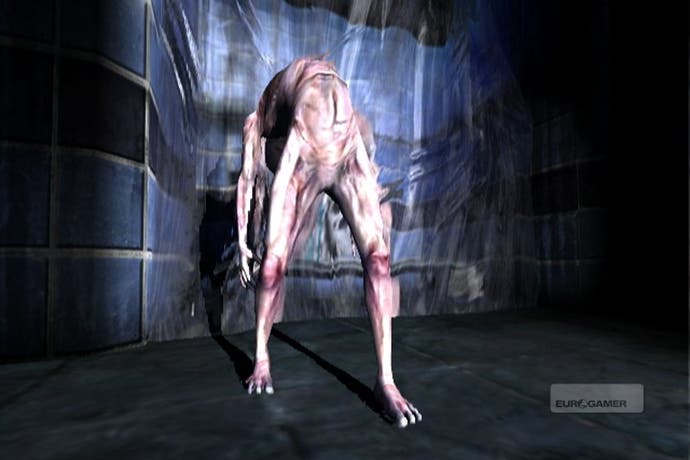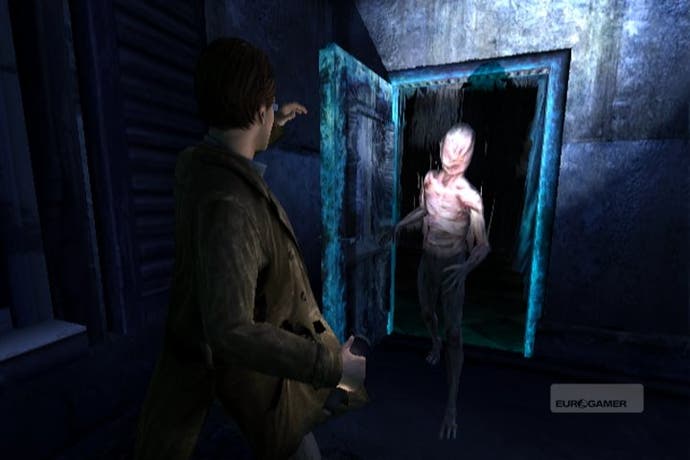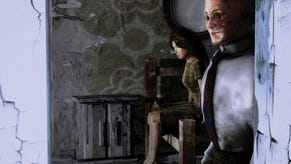Silent Hill: Shattered Memories
Don't go breaking my heart.
Silent Hill has never been the most commercially successful series, but it's hard to overestimate how important it has been to games - and how highly regarded it is by its fans. By ignoring B-movie zombies and endless cheap shocks in favour of an extraordinary atmosphere, memorable characters, oppressive, grinding music and a creeping sense of dread, it crafted a horror experience that was both clever and deeply unsettling. The series reached its narrative peak in Silent Hill 2, but the first game already showed the talent behind the team's storytelling. The mystery behind Silent Hill may have been occasionally mind-bending as it unravelled, but at heart it told a story about fanaticism, suffering and revenge which worked beautifully.
It's paragraphs like that, waxing lyrical about just how memorable and even - whisper it - important Silent Hill was, which probably give the Climax team in Portsmouth sleepless nights. Charged with "re-imagining" the original Silent Hill game on the Wii, the studio has the unenviable task of updating one of the most fervently adored games of the PlayStation era.
Climax at least has pedigree with Silent Hill, having created the solid if somewhat workmanlike Silent Hill Origins on PSP and PS2. Origins was pretty traditional in its structure and approach - in fact, it was criticised for being so obvious, a blatant piecing together of fan-favourite bits from the series with little attempt to innovate. Of course, the same fans who snootily dismissed Origins on that basis would go on to crucify the more recent Homecoming for straying from the formula...

Given that background, you might expect Climax to approach Silent Hill in a similar way to Twin Snakes, Silicon Knights' GameCube update of Metal Gear Solid. Nicer graphics, updated controls, better cinematics - job done.
It's arguably to Climax' credit, then, that it's not prepared to take the simple approach. 'Arguably', because fools rush in where angels fear to tread. While keeping the core story of Silent Hill intact, Shattered Memories (is that a sensible subtitle, actually?) is a radically different game to its progenitor. The team recoils from the word "reboot", on the basis that it implies throwing away what came before, but the even more controversial "re-imagining" is thrown around a few times during our discussion.
Once I'm actually playing Silent Hill: Shattered Memories, it's immediately apparent that this is a very different game. Certainly, I'm playing Harry Mason again, and I'm exploring a strange, largely abandoned town in search of my daughter, who went missing after a car crash. I'm doing so to the strains of Akira Yamaoka's fantastic soundtrack - the fact that he's once again providing the music will be enough to sell the game to many fans.

However, almost everything else is different. Gone are Silent Hill's occasionally dizzying cinematic camera angles - now, I explore the town in a conventional third-person viewpoint. The controls have been radically reworked for the Wiimote, which essentially functions as a flashlight. Harry is moved around with the nunchuk analogue stick, predictably enough, while the Wiimote pointer shines his flashlight around his environment, with a button press to zoom in on anything of interest. It works remarkably well - your movements map nicely onto the flashlight, with no perceptible lag, and everything in the environment casts a realistic shadow from the beam, which lends quite a lot of atmosphere to the rooms you move through.
As to combat controls - there aren't any. One of the most radical changes Climax has introduced is to create a survival horror game without any combat - you don't pick up weapons or beat up monsters. Instead, when you encounter enemies, you run like hell. Despite flying in the face of a decade of survival horror design, the justification is obvious and hard to argue with. This is, after all, what "action" consists of in almost all horror fiction - you don't find a crowbar and beat the supernatural foe to death, you run. Chase sequences are at the heart of horror, from movies to our own nightmares.












